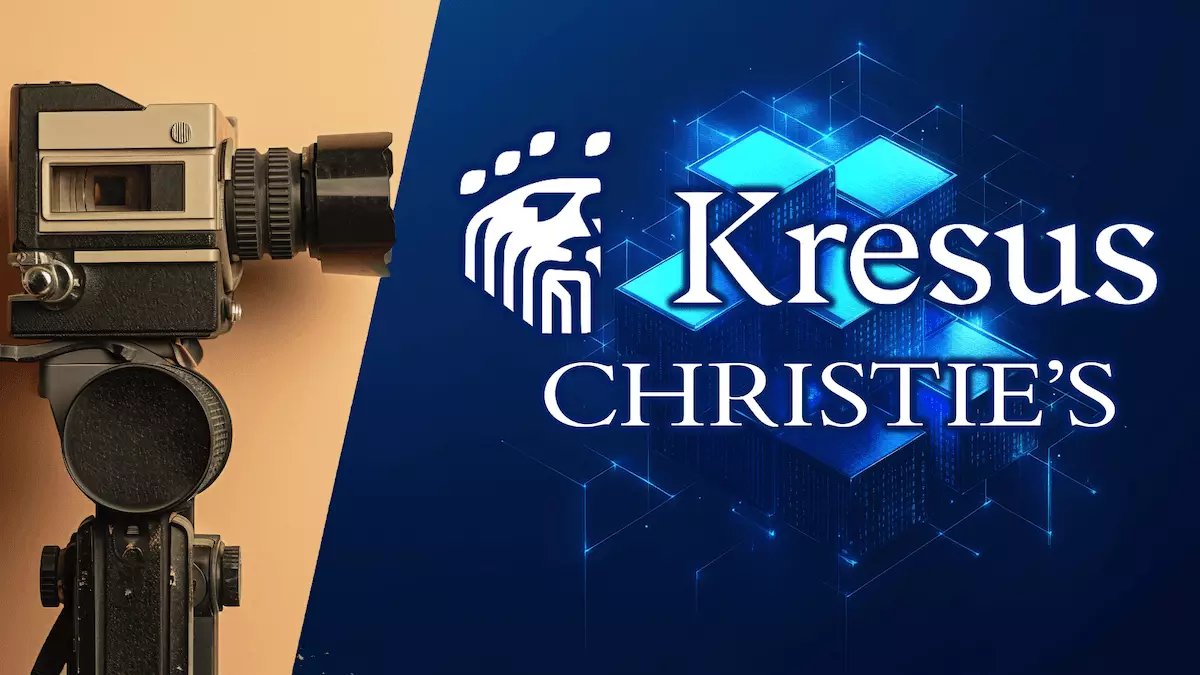The intersection of art and technology has long been a rich seam for innovation, yet the potential of blockchain technology in the art world is only now being fully realized. Kresus, a leading provider of cryptocurrency wallets, has embarked on a groundbreaking collaboration with the prestigious auction house Christie’s. This partnership promises to radically transform the verification and ownership processes for art collectors, introducing a new era characterized by transparency and security. By pioneering a system of blockchain-based certificates for ownership, they aim to streamline authenticity verification and elevate the collector’s experience in unprecedented ways.
At the heart of this initiative lies the forthcoming auction titled “An Eye Towards the Real: Photographs from the Collection of Ambassador Trevor Traina,” scheduled for October 2nd at Christie’s Rockefeller Center. With over 130 unique lots on offer, each artwork will be accompanied by a distinctive digital certificate of ownership, meticulously crafted by Kresus. This innovative approach uses the Base blockchain to ensure that each certificate is secure and immutable, thus establishing a verifiable and transparent ownership record accessible through the Kresus wallet.
Ambassador Traina, the force behind Kresus, personally understands the challenges facing art collectors. As he articulates, managing provenance—usually confined to cumbersome paperwork—is a significant burden for art aficionados. The collaboration aims to eliminate these traditional hurdles by integrating digital solutions that enhance the overall ownership experience. Traina’s insights reflect a growing sentiment among collectors who yearn for more efficient ways to manage their assets.
The upcoming auction will feature works from an array of prominent artists, including Diane Arbus and Cindy Sherman, bringing further attention to the evolution of mid-century photography and the role of female artists. This focus on a theme rooted in historical significance reinforces the value of the artworks themselves while simultaneously showcasing the groundbreaking potential of blockchain in preserving art history.
By linking physical artworks with digital certificates, the pilot program underscores the necessity for increased transparency in the art market. Furthermore, Kresus’s blockchain-driven methodology empowers collectors to authenticate their purchases and manage their investments with newfound confidence. This dynamic framework not only modernizes the property rights associated with artworks but also ensures that transactions in the art sector become more secure.
Christie’s has long positioned itself as a leader in the art auction sector, and its partnership with Kresus aligns perfectly with its commitment to authenticity and transparency. Nicole Sales Giles, Vice President and Director of Digital Art Sales at Christie’s, echoed this sentiment, heralding the collaboration as a natural evolution toward greater accountability in the art world. Such initiatives align with consumer demands for clearer provenance, especially in an era where digital transactions are becoming the norm.
The auction house has its foothold in the digital age well-documented; it achieved remarkable success earlier this year by selling Arbus’s seminal piece, “Identical Twins,” for a striking $1.2 million. This sale illustrates both the importance and economic value associated with verified ownership in art collections. As Christie’s moves toward integrating blockchain solutions, it stands to attract a new generation of collectors keen on navigating the digital landscape of art acquisition.
As the art market undergoes this transformative shift, the partnership between Kresus and Christie’s could serve as a prototype for future initiatives across the globe. This pioneering experiment not only enhances the collector’s experience but also paves the way for an art world that embraces innovation while holding steadfast to the values of authenticity and credibility.
The ambition behind this partnership illustrates the growing trend of technological adoption within traditional sectors. Just as the emergence of cryptocurrencies has disrupted finance, blockchain technology holds the potential to redefine the protocols of art ownership. By championing such initiatives, Kresus and Christie’s are not merely reflecting the currents of change—they are shaping the future of art collecting. In an age where digital and physical realities increasingly blur, this collaboration symbolizes a critical step towards a more integrated and technologically empowered art market.









